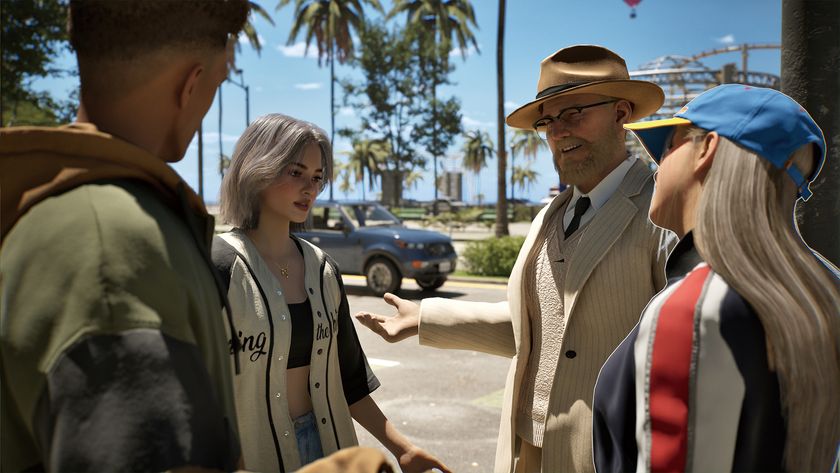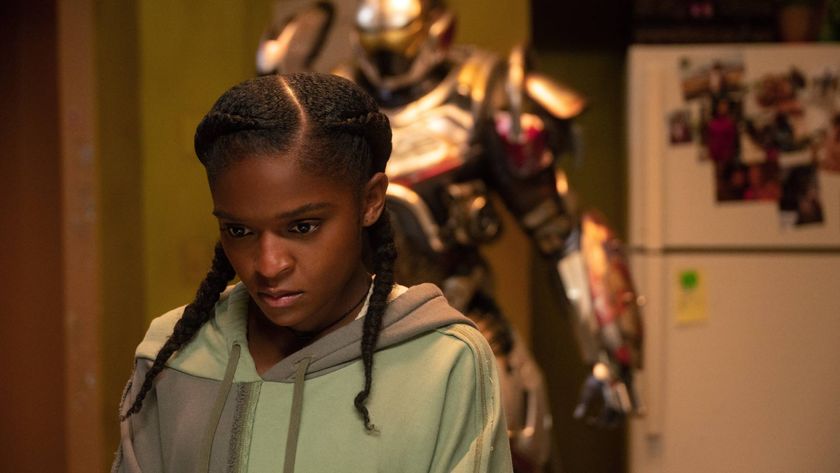The 15 greatest online modes in Xbox history
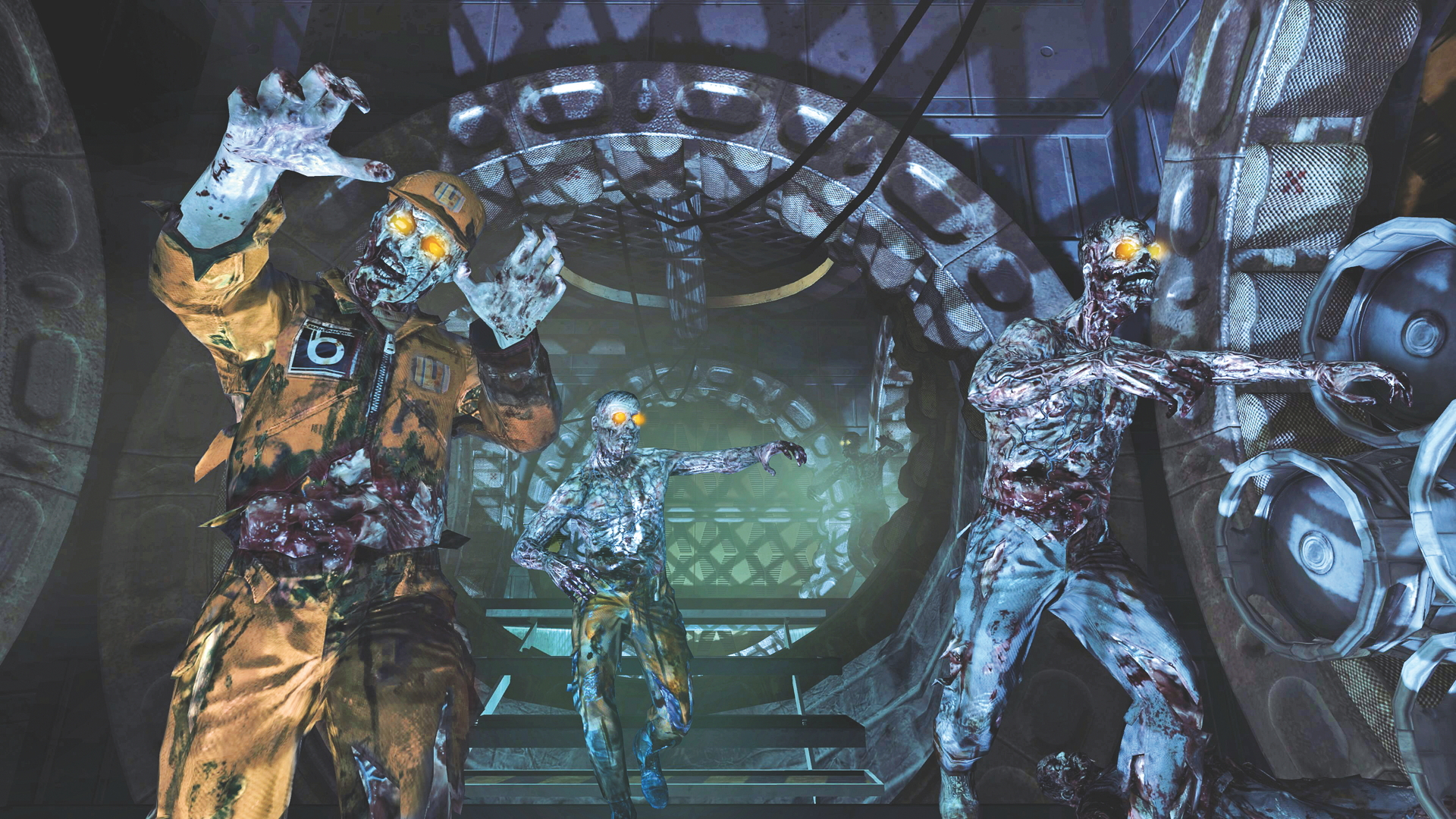
Ever since Microsoft first took the Xbox online back in 2002, developers have been dreaming up weird and wonderful ways for gamers to play together over the internet. We've taken a look back and picked out the most distinctive online offerings to grace Xbox Live.
Big Team Battle – Halo 2

If Halo 2 was the game that launched Xbox Live, Big Team Battle was the mode that showcased its enormous potential. This chaotic playlist pits two teams of eight players against one another in a host of varied objective-based gametypes. In one round you’re desperately defending your flag on Zanzibar, with Warthogs and Ghosts flying past in flames every few moments; the next you’re dropping down into Beaver Creek for a hectic 16-player bust-up. This was Halo 2 at its unpredictable and astonishing best, and the sheer spectacle of an online Warthog convoy more than justified the hefty price.
Shrink – Timesplitters: Future Perfect
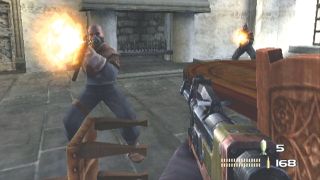
Future Perfect hosted more than its fair share of barmy gametypes. Just take Monkey Assistant, in which the lowest-ranked player receives periodic assistance from simian assassins. But Shrink combines that lovable oddness with a mode that sees players shrink or grow depending on their position on a deathmatch leaderboard. So, while the first-place player is normal-sized, their rivals range from barely-below-average to literally pint-sized. It looks ridiculous, but paves the way for thrilling reversals and surprise comebacks.
Spies Vs Mercs – Splinter Cell: Pandora Tomorrow

Xbox Live wasn’t even 18 months old when Sam Fisher embarked on his second stealth outing, but that didn’t stop Ubisoft from taking some bold risks. The result was a two-on-two mode that pits a team of nimble spies against a pair of hardened mercenaries in a wildly asymmetrical game of espionage and evasion. So, while the two agents tiptoe around in ventilation shafts and faff with high-tech gadgetry, the mercs tote meaty machine guns that can rip a tactical operations bodysuit to ribbons. To secure victory, you have to co-operate closely.
Capture The Flag – Team Fortress 2

Overwatch may be the game that’s scratching our class-based shooting itch just now, but back in 2007 it was Valve that had the market cornered in terms of cartoonish online competition. With nine classes on offer, there’s something for players of every stripe. Eagle-eye marksmen can plump for the Antipodean Sniper, supportive sorts can select the sinister Medic, while lone wolves can race across the battlefield as the speedy Scout. It’s not the most exciting gametype, but the finely tuned interactions between the cast of distinct character classes make this humdrum mode something special.
Wanted – Assassin’s Creed: Brotherhood

Oh, how we scoffed. Back in 2010, a lot of people thought the new multiplayer mode in Assassin’s Creed was just a throwaway addition, but those who sampled Wanted discovered a tense game of stabby cat and mouse. The mode casts each player as an anonymous NPC and tasks you with blending in with an AI population. But somewhere on those grotty Renaissance streets lurks a similarly stealthy player for you to dispatch and a keen-eyed assassin out for your blood. Finding one, while evading the other, was a nervous joy.
Horde – Gears of War 2
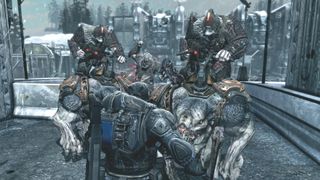
Horde modes may be ten-a-penny now, but it was Epic’s steroidal sequel that laid down the clearest template, and it was the mode’s tremendous popularity that coaxed Halo’s Firefight gametype into the spotlight. Gears of War 2 allows up to five players to team up and touch down on any multiplayer map before throwing 50 successive waves of Locust aggression at the embattled quintet. And while Horde 3.0 reimagines the mode as some sort of strategic tower-defence shooter, the original was a creation of collaborative arcade purity, demanding mighty-fine marksmanship and co-operation to avoid a bruising defeat.
Sign up to the 12DOVE Newsletter
Weekly digests, tales from the communities you love, and more
Zombies – Call of Duty: Black Ops

Black Ops wasn’t the first Call of Duty to feature a zombie gametype - that honour goes to 2008’s World At War - but this morbid multiplayer mode was thoughtfully expanded and brilliantly refined for its second outing. The result is a blend of demanding arcade gunplay and swivel-eyed narrative lunacy in which you find yourself bellowing at JFK for failing to cover his corners as you purge the Pentagon of its undead infestation. And since there’s no end to the corpsey foes, well-drilled teams can survive for hours, driving back dead-eyed beasts by way of precision headshots, hasty barricade repair and the judicious purchasing of weaponry.
Freeburn Online – Burnout Paradise

Criterion’s last great racing game was no meek refinement of what had gone before - it was an open-world explosion of creativity. This transformative touch extended to its multiplayer mode, too, with Freeburn Online. Rather than loitering in lobbies or fussing with menus, you join games with a few prods of the D-pad. Once connected, you can tool around Paradise City like a nitrous-powered nut, initiating challenges on a whim or hopping seamlessly into a Marked Man chase. Alternatively, you can pass whole evenings just exploring the city as part of a deranged convoy, having the time of your life.
Rush – Battlefield: Bad Company 2
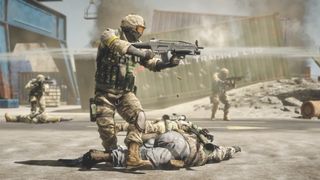
In bringing Battlefield to consoles, DICE decided to shake the original PC game up. Rush is a one-way dash down a narrow map, as the attacking team steadily pushes entrenched defenders back from base to base. This lends matches a tremendous sense of momentum, and each M-COM Station captured or destroyed provides the attacking team with a fresh frontier to conquer. The defenders, meanwhile, can achieve victory by simply killing their aggressors, blunting the attack by wiping out reinforcements. Whichever side you’re on, it’s tense and tactical.
Infection – Halo 3
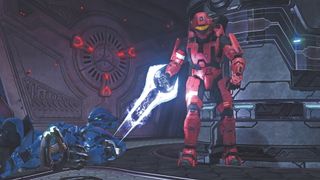
What began as a community curio in Halo 2 grew some serious (rotting, undead) legs in Bungie’s Xbox 360 sequel. Each game of Infection names one player as the Alpha Zombie, arms them with an energy sword and tasks them with contaminating the Spartan survivors that are cowering elsewhere. And while this ragtag band of gun-toting survivors may start out cocky and carefree, things inevitably take a turn for the panicky as members of their team are steadily picked off, only to join the ranks of the undead. And then it all ends with a terrifying last stand, as one human player is besieged by a sword- flailing horde of sickly green Spartans.
Cat and Mouse – Forza Horizon

Racing games aren’t usually considered hotbeds of innovation within the field of online gaming, offering little more than a selection of bog-standard races. But Forza Horizon’s Cat and Mouse mode is a nutty contribution to the world of networked multiplayer, sorting six players into two teams, each with one lumbering ‘mouse’ car that the agile ‘cats’ must protect. The result is gleefully chaotic - a showdown between two sluggish jalopies that’s constantly disrupted by kamikaze musclecars. All that mayhem and hilarious carnage concealed a game of tactics and teamwork.
Team Battle – Ultra Street Fighter IV

First introduced in the Super edition of Street Fighter IV, Team Battle offered pugilists an avenue of interest away from the game’s one-on-one bouts. And while these vanilla matches remain the finest way to savour Capcom’s ode to punching, Team Battle is excellent in its own right, offering two teams of three players a test of tactical smarts as well as thumb agility. It’s not much more complicated than winner-stays-on with teams, sure, but damage taken carries over from match to match, making each bout truly tense, and every punch, kick, and fireball to the face matter.
Campaign – Left 4 Dead 2

This co-operative sequel didn’t reinvent the zombie-shooting wheel, but it made meaningful improvements to practically every aspect of the franchise formula. New additions, such as melee weapons and a brace of icky new infected, sit happily alongside familiar features like the returning AI director that procedurally spawns undead. But the best change was the move from grey and grimy Pennsylvania to the tremendously varied terrain of American South, which forced your fresh-faced band of survivors to trudge through creepy carnivals and sinister swamps in their lengthy search for safety.
GTA Online – Grand Theft Auto V

At its most basic, GTA Online allows up to 30 players to coexist within a single instance of Los Santos. But GTA Online is more than a glorified multiplayer mod - it’s an entire world of racing, deathmatches and heist missions, all underpinned by an economy of XP and cash that attaches a sense of progression to your madcap antics. One evening, you might mount a daring co-operative assault on a military base and escape in a heavily armed jetplane. The next, your group might get shot by an unexpectedly uppity shopkeeper while trying to knock over a local convenience store. There’s simply nothing else quite like it.
Escort – Overwatch
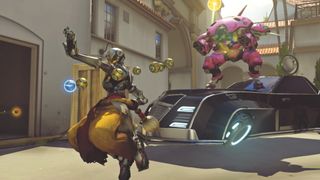
The great strength of Blizzard’s class-based shooter is that every character has a counter. Bastion may be a powerhouse in defence - capable of stalling an entire team - but that robotic sucker’s an easy target for Genji, who can deflect all that damage right back. And nowhere is this brilliant interplay between Overwatch’s cast of 22 characters more clearly demonstrated than in Escort, which tasks an attacking team with pushing a mighty payload towards a vulnerable delivery point. What follows is a cartoonish game of chess in which smart players will constantly switch characters to counter defensive roadblocks or attacking surges.
This article originally appeared in Xbox: The Official Magazine. For more great Xbox coverage, you can subscribe here.
James has been writing about games for more than a decade, covering everything from glittering masterpieces to PlayStation Home. Over the years, he's contributed to the likes of OXM, OPM, and GamesMaster, though he occasionally finds time to write for publications that don't get closed down, too. And although he was once Managing Editor of Warhammer Community, he actually prefers knitwear to ceramite.
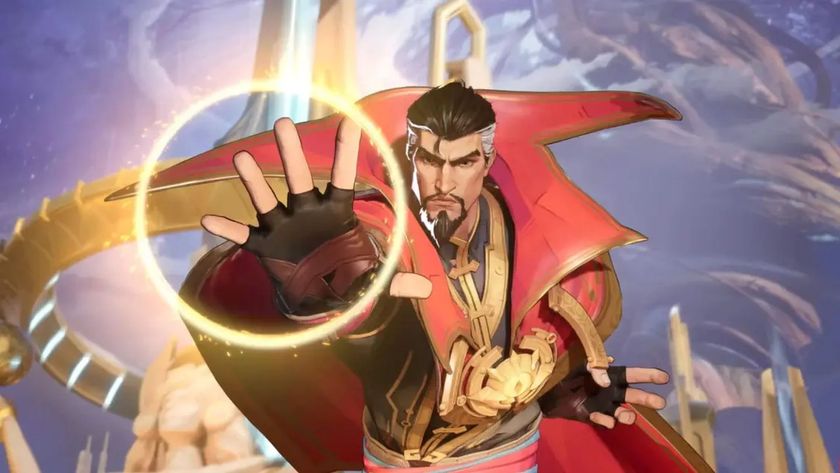
Marvel Rivals puts fun first in game balance, but new heroes and maps can still get complicated: "We joke about when we develop a hero and when we develop a new map, it's just doing science research"
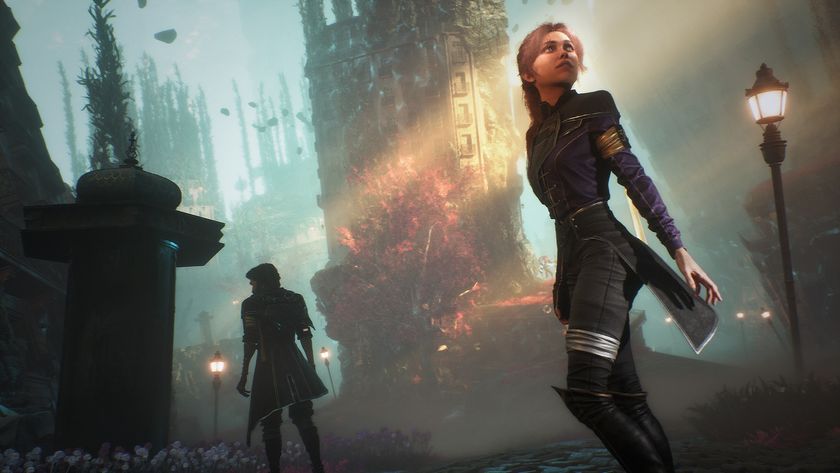
It's not just your favorite JRPGs, Clair Obscur: Expedition 33 takes notes from Studio Ghibli movies like Spirited Away and Howl's Moving Castle too

